- Learning time
- 30 minutes
- First play time
- 90 minutes
Discworld: Ankh Morpork
Designed by: Martin Wallace
Inspired by – and based in the world of – the Terry Pratchett novels, Discworld: Ankh Morpork sees the players inhabit a chaotic city, where everybody has a different goal in order to win. Each player is given a hidden character card at the start that gives a victory condition specific to that player only – so everyone is trying to steer the game in a particular direction for their own purposes. You might be asked to control a certain amount of neighbourhoods on the board, for instance, or get a certain amount of money.
The board shows the city of Ankh Morpork, which is broken into smaller neighbourhoods. Players are dealt 5 character cards from a deck, and on your turn you simply play one of these cards. The cards all have specific actions – allowing you to add your own pieces (hereafter referred to as minions) to the board, moving minions from one place to another, and getting money, which is used in turn to build buildings – more on those in a moment.
Moving minions around on the board often stirs up trouble: a very tangible quality in Ankh-Morpork, as it comes in the form of black discs that populate the city. Whenever a minion joins a neigbourhood that already has minions of another colour in it, a trouble marker gets added. Conversely, a minion leaving a crowded neighbourhood removes a trouble marker. Trouble stops you from building a building in any area, and buildings are good because they get you special abilities on every subsequent turn; these can be very valuable, and different neighbourhoods cost different amounts to build there.
Periodically the game will throw a random event at you, which will usually be disastrous – or at least inhibiting. Buildings may be lost, there may be fires or floods. Demons and Trolls may appear in the city and have to be dealt with – or at least avoided. At the end of your turn you replenish back up to five cards, and play continues. The game finishes either when someone announces they have met their victory conditions – revealing their character card – or when the cards all run out. (There is one character card whose victory condition is the cards running out, but if nobody has that character there is a point-scoring mechanism in the rules to work out the winner.)
There are a large amount of book or TV tie-in games out there, and generally speaking it pays to be wary of them. But Discworld, like the more weighty A Game of Thrones, proves an exception.
The guru's verdict
-
Take That!
Take That!
High. As well as outnumbering each other in the city, you're also doing damage with the cards.
-
Fidget Factor!
Fidget Factor!
Low. There is only one decision each round; which card to play. This may lead to the odd lull but generally Discworld zips along.
-
Brain Burn!
Brain Burn!
Low to moderate. While you only have to play one card each round, you also need to keep an eye on the board and develop solid theories as to which of the endgame conditions your opponents are trying to achieve. It's important everyone is aware of what they are.
-
Again Again!
Again Again!
If you like the managed chaos of Ankh-Morpork, the game will change with each play due to the different character cards, and the randomness of the deck itself.

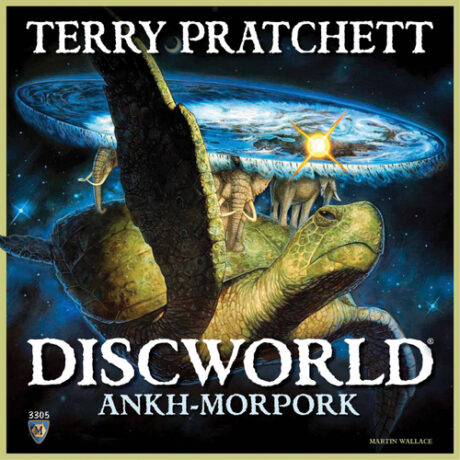
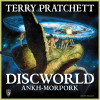
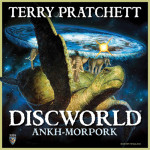
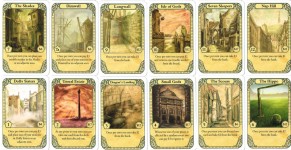
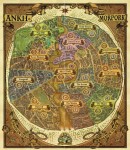
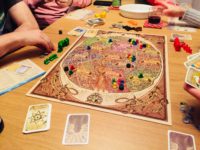
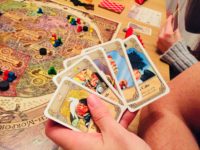


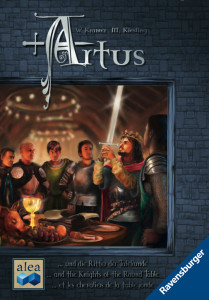
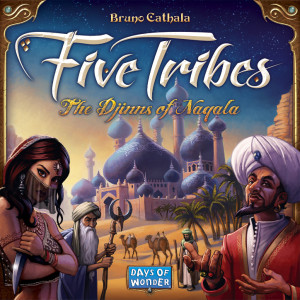

Sam says
Generally I'm a fan of Martin Wallace games and Pratchett fans assure me that the chaos here feels thematically true to the books. It's certainly silly and the right group will enjoy the madness of the cards seamed with the deduction of working out which player has which victory condition to fulfill.